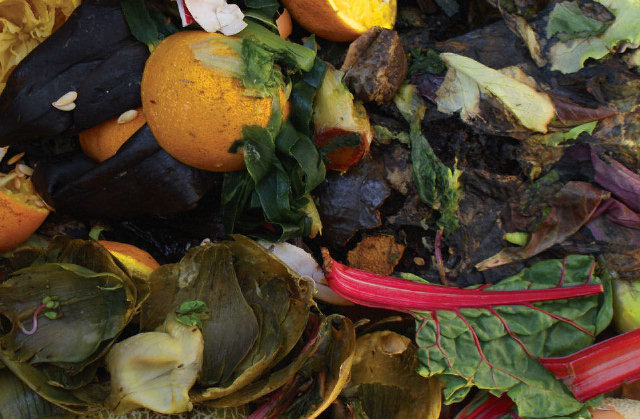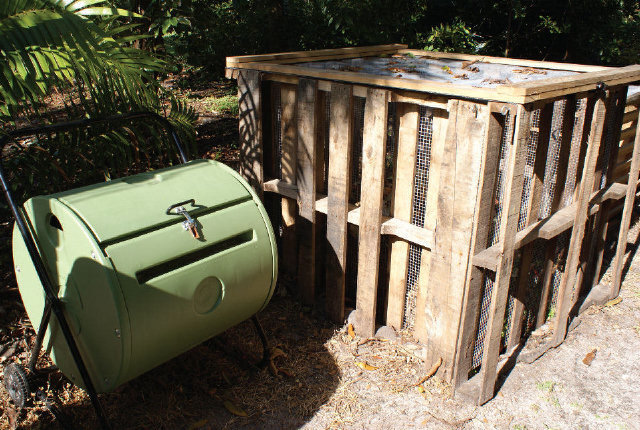Feed your soil, not just your plants

As published in The Miami Herald
Building healthy soil is one of the most important things you can do for your garden, especially if you are growing an edible garden. Here in Florida, we are particularly challenged with rocky, sandy soil that is low in nutrients and organic matter. Adding organic matter to your soil will provide a wealth of benefits that will be reaped for years to come.
Think of your soil as a living organism that supports the plants growing in it. Soil is far from dead or inert; it is full of a multitude of microorganisms. While some soil organisms may be harmful, many are very beneficial, creating complex food webs and providing critical ecosystem services.
For example, decomposers help break down organic matter to make nutrients more available; mycorrhizal fungi provide associated roots a higher absorptive capacity and ability to extract water and minerals from the soil. Other soil organisms attack pathogenic fungi and bacteria, contributing to a healthy balance in the soil that allows for optimal plant growth.
 |
| To build your own compost, place alternating layers of brown and green materials in a pile out of direct sunlight. Make sure to turn it regularly and keep it moist. |
However, these beneficial organisms need a healthy, thriving soil full of organic matter to support them, and it is up to us to help create that.
The best way to add organic matter to your soil is by using compost. You can purchase bags of compost from a garden supply store or you may find another source, such as a local organic chicken farm. Some cities, including Miami, provide free compost from recycled Christmas trees or yard waste to residents at municipal facilities.
It is also a great learning experience to have your own compost bin at home. You can build one from pallets or chicken wire, or you can purchase a compost bin from a garden supply company.
Many organic materials can be added to your compost bin, but stay away from any type of meat products, as this will attract pests to your pile.
The key to a healthy compost pile is a proper balance of green/wet materials and brown/dry materials. If your pile is too wet with fresh green kitchen scraps, it may become anaerobic and begin to smell. If your compost pile has only brown dry garden waste such as leaves and sticks, it will take longer to decompose into ready-to-use soil. Finished compost looks like moist, dark, rich soil that has a mostly even texture without any big chunks.
 |
| Compost or worm bins can be made from a variety of materials or purchased ready-made. |
Not only does compost add organic matter and beneficial microorganisms to your soil, but it has many other benefits. Compost helps maintain moisture levels and the water-holding capacity of your soil, it improves soil structure and reduces soil compaction while increasing soil aeration, and it helps buffer pH and temperature changes in your soil.
Fertilizers, on the other hand, can reduce soil structure, affect soil pH over time, and increase the soil’s salinity. And, of course, composting helps reduce waste in our landfills whereas fertilizers can contribute to that waste and pollution.
Always remember that healthy soil full of organic matter is much more sustainable than a fertilizer applied to your plants periodically, so grow your garden with the idea that you should feed your soil, not just your plants.
